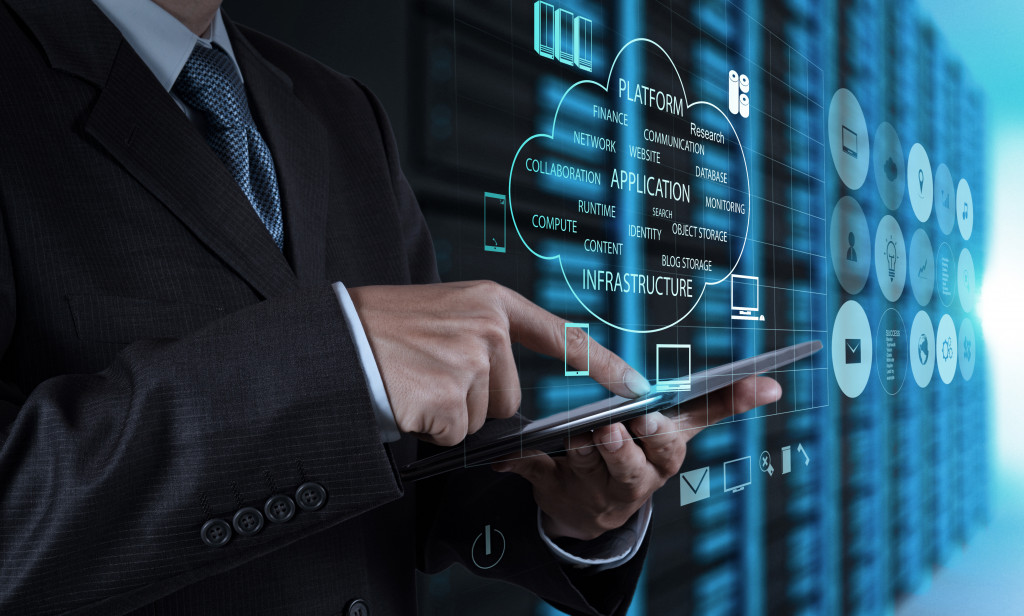Data and information are prized resources in this day and age. This isn’t a surprise when thousands of businesses within the same industry are constantly looking for ways of innovating their products and outlining new business strategies. The best way of doing this is by gaining critical customer information and doing much-needed research on your target market.
There’s a common notion that cyber-attacks and data breaches can only happen to large burgeoning corporations. In reality, cyber-attacks and crimes can happen to almost any type of business. In fact, many hackers and malicious individuals would instead target smaller companies because they don’t have the proper cybersecurity infrastructure and state-of-the-art anti-malware software that can protect them from cyber-attacks.
So what are some important ways of keeping your information network as secure as possible? What should you be doing to manage your data and information effectively? Here’s what you need to know.
Placing Emphasis on Your Cybersecurity
One of the best ways to keep your information infrastructure safe is by emphasizing your cybersecurity. Although it might not seem like the most pressing matter for many business owners that have more pressing issues to attend to, cybersecurity can significantly impact keeping your information secure from malicious individuals. Cyberattacks have become increasingly popular in the past few years, and this has caused millions of dollars in revenue for many large corporations.
So what’s a good way of mitigating and preventing cyberattacks? Emphasizing cybersecurity and having an efficient IT management system in place is an excellent way of solidifying your IT network’s foundation.
Still, it’s essential to keep in mind that you need professional help supervising your IT infrastructure. Fortunately, you won’t have to look far for professionals when a reliable IT security service can keep your information network in pristine condition.
Backing Up Your Data

Perhaps one of the best ways of protecting your data and ensuring that it does not fall into the wrong hands is by effectively backing up your data. If possible, you might make it a habit to regularly store files in the server or cloud network. This way, natural calamities like flooding, fires, and critical mechanical errors won’t affect data loss.
Regulating Access to Information
One of the most crucial parts of cybersecurity and ensuring that only authorized personnel has access to data and information is by regulating who has access to these types of information.
Although giving your employees access to valuable data and customer information is an excellent way of maximizing productivity, your workforce should only have access to information necessary to the nature of their work. For instance, human resource personnel can have access to the personal information and documents of current workers. At the same time, the HR management system should be restricted from accessing workers on the production floor.
The best way of regulating access to this information is by only giving security credentials to individuals that need this information. The fewer people that have the privilege of accessing critical company information, the better the security is. At the same time, visitors who are accessing these computers and files should be logged by the system. It’s also important to consider that if someone leaves the company for quite some time or if they’re absent, you might want to suspend their credentials.
Disposing of Old Equipment
Another important way of keeping your information network in good condition is by permanently deleting files and disposing of old equipment that still has access to your networks. This can come in laptops, smartphones, and computers that don’t serve any purpose anymore. Remember: the more devices are connected to your network, the higher the risk of unauthorized personnel getting their hands on sensitive customer information.
But before you get rid of your old equipment, you must ensure that all the critical data is now transferred to your computer and your laptops. Once all the essential business information has been moved to more secure laptops and devices, you can now start deleting and wiping the memory out of these computers. However, you might want to consider using deletion software since this can permanently wipe the files off these computers.
It’s also essential to keep your newer equipment up to date with timely updates. Not only can this help keep your systems in good condition, but this is an excellent way of mitigating the risk of malware.
Information and data are just some of the most valuable resources in maintaining business continuity. Keeping your information infrastructure safe and secure is key to smoother business operations. At the same time, this can lower the risk of data breaches and information falling into the wrong hands.

